Damp proofing is a fairly recent addition to the construction industry, considering the number of years that humans have been building properties. Only since 1875 have damp proof courses been compulsory, although they have changed significantly since then.
Your knowledge on the subject will vary according to whether you're in the industry yourself or you've found it necessary to contact the experts to sort out your damp problem! Any other information may have been acquired over the years from others who have told you about their own experiences.
But, on the whole, most people won't know much about damp proofing at all.
So, let's assume that you are in this group and you're trying to find out more. DryCore is here to fill in all the details so you have all the information you need on the subject.
A damp proof course (DPC) is a water-repelling layer that's set into the wall structure at least 150 mm above the external ground level on outside walls.
In earlier years, they were often made from lead or slate - both of which have excellent moisture-resisting properties. These days, they are usually made from high-density polyethylene, although asphalt and bitumen are also used sometimes.
These examples are all materials commonly used in the construction process, usually referred to as a damp proof membrane. You can also check out our post "How To Install Damp Proof Membrane On Concrete Floor" for more additional insights.
However, these don't last forever and can eventually fail. When this happens, the property is left without an effective damp proof course, putting it at risk of damage (more on this next). In these cases, a different approach is needed, as it's not practical to replace the existing damp proof course.
We'll look into the alternatives in a moment, but first, let's see why your damp proof course is necessary.
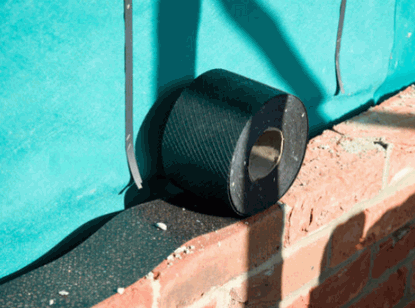
Without this protective layer, the property will potentially experience damp problems. The UK is a wet country: we get, on average, between 31 and 55 inches of rain a year, and all that rainwater soaks into the ground around our homes where it threatens to seep into the fabric.
Damp proof courses are essentially installed to prevent rising damp, although they can also help with penetrating damp.
Surprisingly, rising damp is a contentious issue: some people strongly reject the notion that it exists at all, despite the fact that millions of property owners need professional help every year to combat its effects!
You can see more about this argument in our blog called, What is damp proofing? We won't waste any more time on it right here, as our aim is to furnish you with useful facts rather than ill-informed and unfounded claims.
So, back to rising damp. This is the result of capillary action, which is simply water rising through porous materials like brick and stone. Once this reaches a certain height, it will begin to affect the interior walls, resulting in damp patches, mould, mildew, and rot.
If this rot continues, affecting timber components within the building, it can cause structural damage that is potentially catastrophic and certainly expensive to fix. While it (thankfully) rarely gets this bad, it is a very real possibility. In most cases, however, the damage is limited to crumbling plaster, ruined wallpaper and paint, rotted skirting boards, and staining from black mould. It's vitally important to get this checked out if you suspect that your property is at risk of rising damp.
As a respected damp proofing specialist, DryCore can confirm that a functioning damp proof course is absolutely necessary for both domestic and commercial properties!
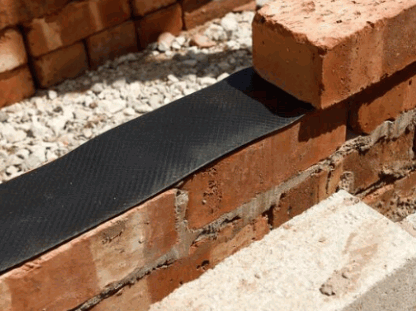
No, a lot of older buildings don't have them, particularly if they were constructed before 1875.
Do they need them? Well, that's debatable: single-wall buildings were mostly constructed with breathable materials, relying on lime mortar and render, along with open fireplaces and draughty doors and windows. This arrangement allowed the buildings to stay relatively dry and free from moisture, but it was far from ideal, and neglected properties soon became damp.
However, applying modern damp proof treatments to listed buildings or heritage properties isn't always the best option, as the materials may be incompatible and could cause further damage without resolving the damp issue.
Most modern homes have a cavity wall (a gap between the inner and outer walls) for insulation purposes, and if this is bridged for any reason, it can lead to penetrating and rising damp problems. In these cases, modern techniques are ideal for fixing the problem.
Damp proof courses are also found inside most properties these days, usually in the form of a high-density polyethylene sheet set within the interior walls that run down beneath a concrete slab. This prevents ground water from seeping through from the building's foundation.
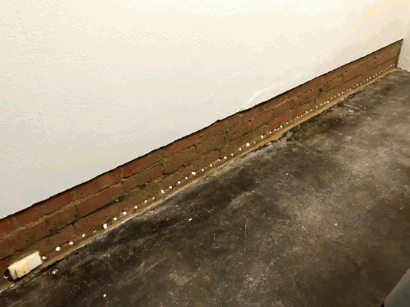
The main cause of failure is old age or the fact that they sometimes weren't exactly built to last. When they became compulsory in 1875, a large majority of brick layers didn't understand their importance (or care about it?).
Because of this, they weren't fitted properly or were made from inferior materials. And as a result, they have begun to break or decay over the years, resulting in the protective barrier being breached by moisture.
It's not easy to suggest an accurate lifespan, as it depends on the material. Most modern damp courses are designed to last for at least 20 to 25 years, although a heavy-duty plastic DPC can last much longer.
It also depends on the conditions the material is exposed to and whether or not it has been damaged. For more information, you can check out our post "How Long Does A Damp Proof Course Last".
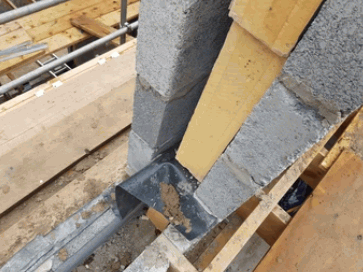
One common cause of damp course failure is when building work has raised the ground surface, causing soil to make contact with the external walls above the damp proof course.
You'll usually know if or when your current damp proof course has failed, as you'll see the classic signs of the excess moisture inside your property: mould, damp walls, wet rot, and dry rot, and this can lead to serious problems.
And that's when you know it's time to get an expert to check your damp proof coursing!
When damp proof membranes fail, it's neither practical nor cost-effective to replace them as that would entail removing masonry and mortar to insert the membrane and replacing them afterward. Instead, a range of modern alternatives have been developed which effectively take its place and prevent moisture from entering interior spaces.
There are several types of damp proof treatment, but these cavity wall* damp proof treatment examples are currently popular in the UK:
Probably the best-known of the various methods, this system involves having holes drilled in the mortar course just above the existing DPC. These are injected with a silicone-based liquid, cream, or a solid rod made from water-repelling materials that prevent rising damp.
This method involves inserting a copper cathode through the walls and burying it at ground level outside. This generates a positive electric charge that repels water and stops it from penetrating the walls. However, this is a more expensive option that hasn't seen widespread use in the UK yet.
*As mentioned earlier, they may not be suitable for older buildings without cavity walls.
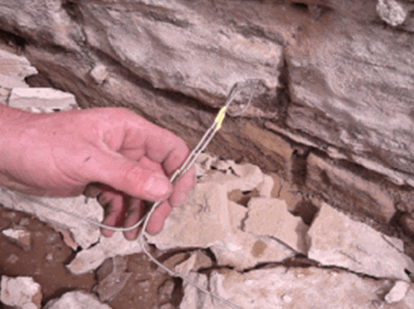
Hopefully, you'll be au fait with the terms used in damp proof treatment now, so when you have any damp proofing carried out on your home or business, you'll know what's going on and you can protect yourself from rogue traders.
When you need a damp proof treatment expert, contact DryCore for complete peace of mind. We'll diagnose your dampness issue and provide the correct method or advice to resolve it.
Whatever you do, leaving it is not an option - it won't get better by itself!
While you're here, make sure to check out our post titled "How Much Is A Damp Proof Course" for further insights and valuable information.